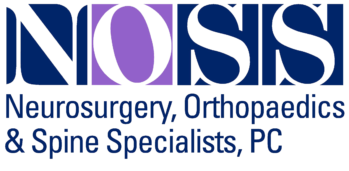Injured on the Job? Here’s What to Do for Medical Treatment through Worker’s Compensation
Suffering an injury while on the job can be a distressing experience. However, it’s crucial to understand that you have rights and resources available to you, such as worker’s compensation, to help you receive the necessary medical treatment and support. In this blog post, we will guide you through the steps to take if you are injured at work, with a particular focus on accessing medical treatment through worker’s compensation.

The first and most critical step after being injured on the job is to report the incident to your supervisor or employer. Timely reporting is essential, as it helps establish a clear record of the injury and ensures that your employer is aware of the situation. Be sure to provide specific details about the injury, including the date, time, location, and how the incident occurred. Failure to report the injury promptly may hinder your ability to receive worker’s compensation benefits, including medical treatment.
Following the injury, it is crucial to seek immediate medical attention. Depending on the severity of the injury, you may need to call for emergency medical services or visit an approved medical provider. In some cases, your employer may have a designated list of healthcare professionals or facilities that you should visit for treatment. Inform the healthcare provider that your injury occurred at work, as they will need to document this information for worker’s compensation purposes.
After receiving medical attention, inform your employer’s worker’s compensation insurance company about the injury. This notification allows them to initiate the claims process and begin evaluating your case. Your employer should provide you with the necessary information regarding their worker’s compensation insurance carrier and the reporting procedure. Remember to provide accurate and detailed information about the injury and the medical treatment you have received.
Worker’s compensation typically covers medical treatment related to the workplace injury. It is essential to strictly adhere to the treatment plan prescribed by your healthcare provider. Attend all scheduled appointments, follow medication instructions, and participate in recommended therapies or rehabilitation programs. Deviating from the prescribed treatment may not only hinder your recovery but may also jeopardize your worker’s compensation benefits.
Maintaining comprehensive records is crucial throughout the worker’s compensation process. Keep copies of all medical reports, bills, and correspondence related to your injury and treatment. Document the dates of all medical appointments, the names of healthcare providers you have seen, and any expenses incurred. These records will serve as evidence for your claim and can help ensure that you receive the appropriate reimbursement for medical expenses.
If you encounter any difficulties or complexities during the worker’s compensation process, it may be beneficial to consult with an experienced worker’s compensation attorney. They can provide guidance, protect your rights, and help navigate the legal aspects of your claim. An attorney can also advocate for your best interests and ensure that you receive the necessary medical treatment and benefits.
Suffering a workplace injury can be a challenging experience, but understanding the steps to take can make a significant difference in accessing medical treatment through worker’s compensation. Promptly reporting the injury, seeking immediate medical attention, notifying the insurance company, following treatment guidelines, maintaining detailed records, and seeking legal assistance if needed are essential for a smooth and successful worker’s compensation claim. Remember, prioritize your health, safety, and well-being throughout the process.

